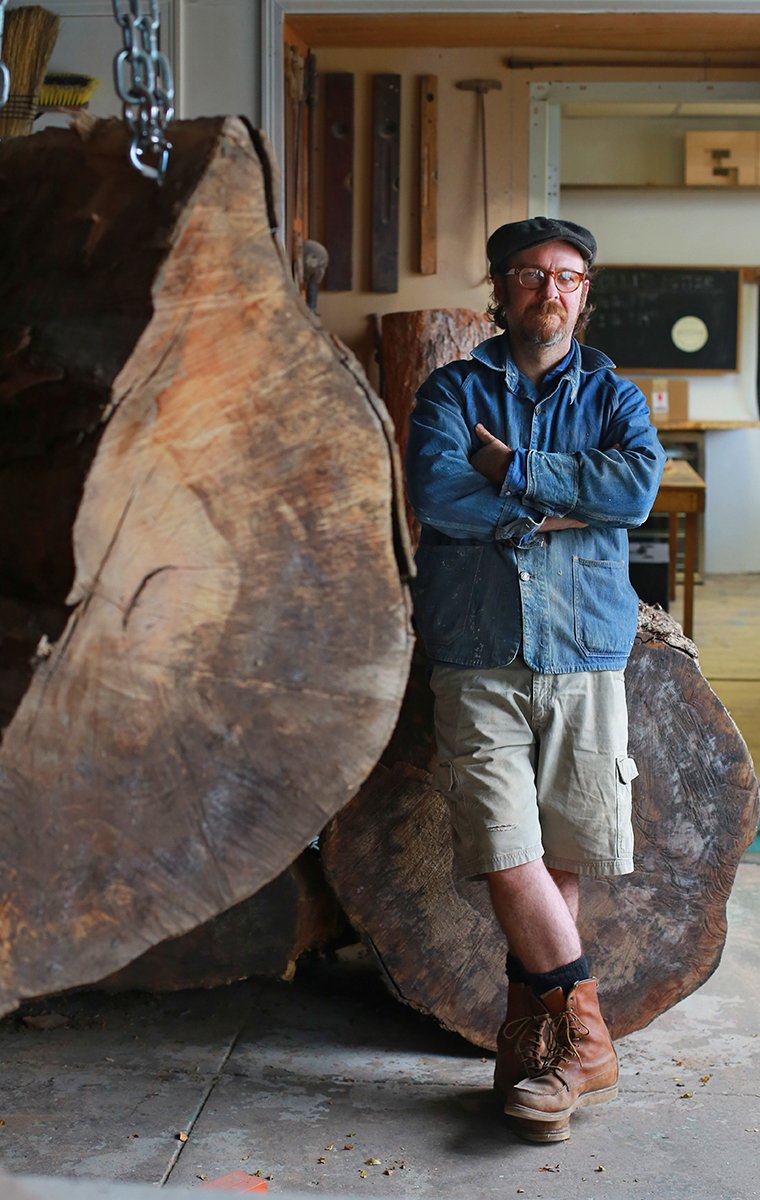mdby……JOSHUA VOGEL
The spring arrives and we have chosen the Wood to talk about, a good reason, isn’t it? What do you think of Joshua Vogel‘s work?
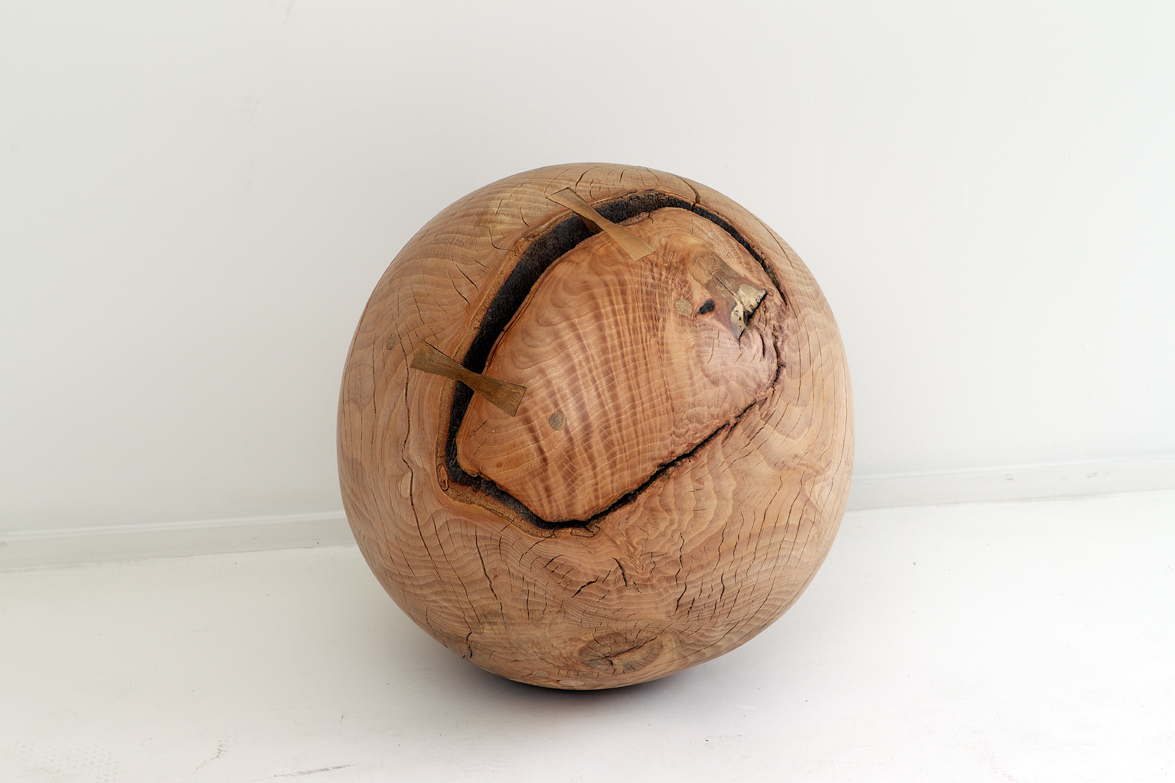
Joshua, you studied architecture, you established your first studio, and you was co-founder of BDDW in NY City, what made you leave all this and move to Hudson Valley? Have you find there what you were looking for?
I had studied architecture in university, but to be clear, I never established an architecture studio practice. During school, I sought out jobs that might help teach me more about the practical side to building things like construction or work shop jobs. In school, I was aware that I was attracted to smaller scale design work, residential, homes on down.
Something about the accessibility, something about my own ability to execute the work myself and interact with the design process was what seemed important to me about my learning process. I remember quite well my desire to treat architecture like sculpture, something that I could carve out, something that I could roll around in and experience learning about it on that sort of level. Needless to say, this desire drew me away from university and directed me towards applying myself more immediately.
BDDW began as that practical extension. There was no road map or precedence at that point, just the desire to learn, to design, and to build. In this
respect, for me, nothing has really changed, I still have those desires and motivations. I wouldn’t say that I have necessarily left anything in moving to the Hudson Valley rather I have assimilated various experiences and moved on, each step a move forward in my life. Perhaps it is necessary to give some things up to move forward, but I don’t really think about life this way. Hopefully, in any case, growth is the natural consequence of experience. Have I found what I am looking for? The short answer is no, not yet. . . and although I am satisfied by many things in my life now, I am driven by the feeling that I can always do more, and that I can always do better.
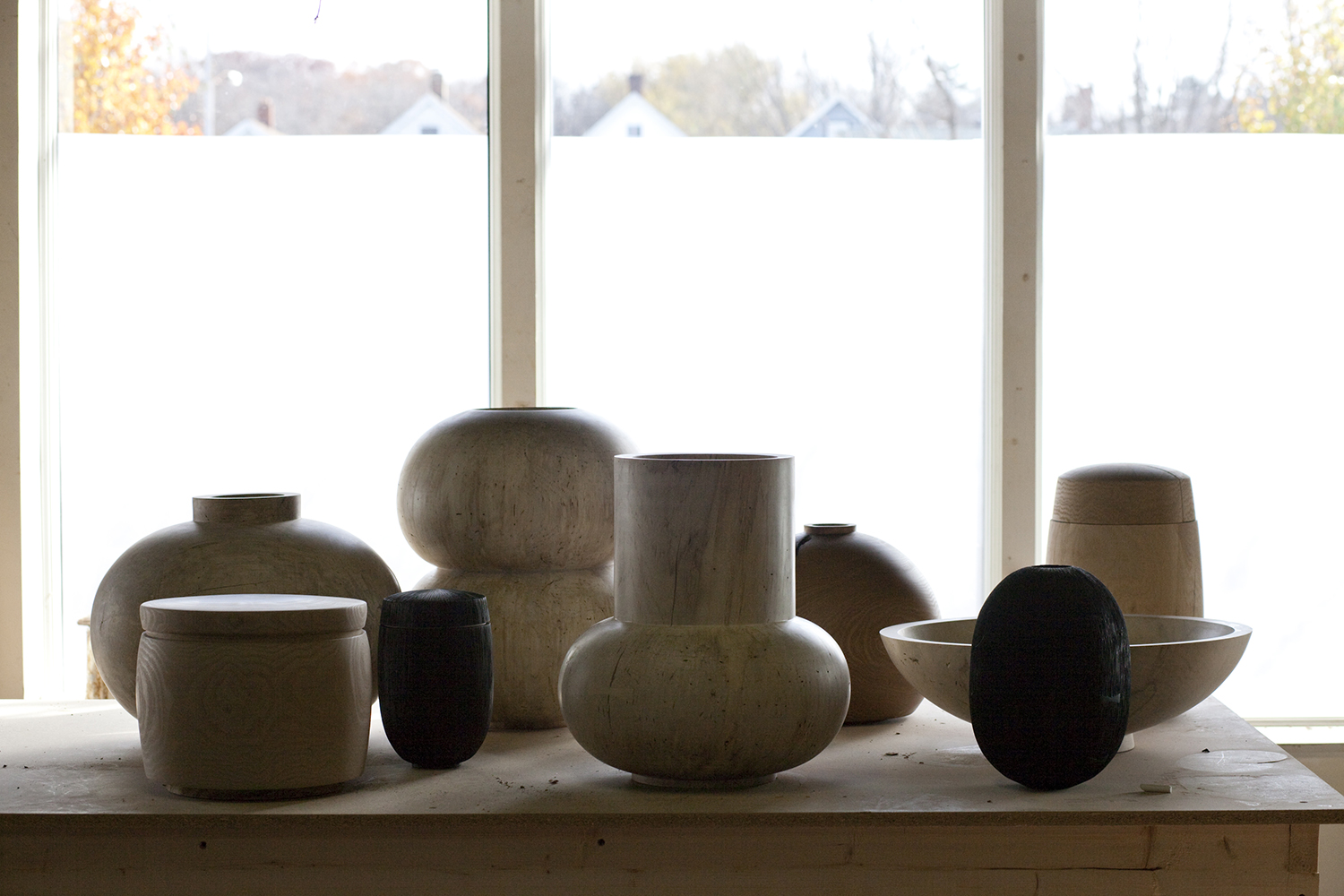
What are your basics in life and work? Do you even divide them in two areas?
Here in the United States, we differentiate what we think about European life style in this way: In Europe you work to have a good life, here in the States we simply live to work. I am sure that this generalization is a gross overstatement, but there is the sentiment here that we are on a very dangerous treadmill that just can’t stop. I used to work seven days a week to get ahead until it became obvious to me that I didn’t know what I was trying to get ahead of! Also, there came a point that I became aware of all the other things that I was missing in my life, serious health and quality of life issues. I believe in the law of diminishing returns, that after a while you may be better off taking a well needed a break. I also believe that sometimes we need to create space in our lives to allow the rest of the world in. There are those people who claim that they are always at work. I could not physically always be at work, I would die of exhaustion. I think that what these people mean is that they are always trying to use their brains to further their own industry in some way, always open to having ideas or even dreaming about solutions when they are asleep. In my life and in my process, I don’t consider this kind of effort to be work. I am not suggesting that dreaming is not important, but that I draw a very practical distinction with productivity in the shop, a 9 to 5, 5 days’ work week, work as labor as “work” and the rest of the time as something else. To me, being creative is not work in this sense, it is a way of life.
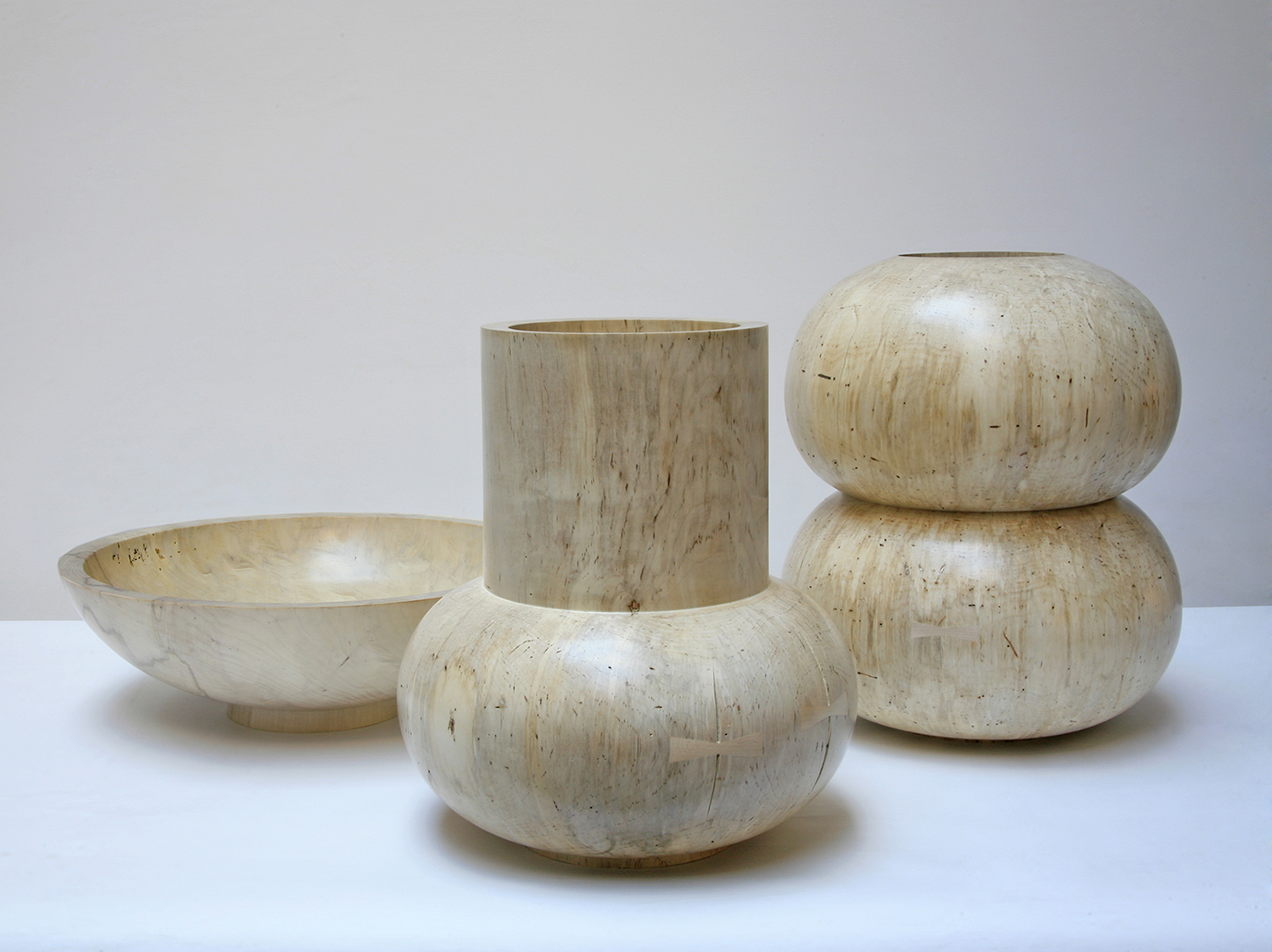
You explain “discipline and practice to achieve inspiration”, from where do you get the strength for such an incredible discipline, and energy that you transmit through your work?
This is what I’m talking about. I think that I use work, and the structure of work to exercise my creativity and give it shape. I draw from inspiration from everywhere, if it is perceived to be strength it is only that I endeavor to be a conduit for things much greater than myself.
I don’t think that the idea of practice as a regular activity is by any means new concept, I think that it is the reality for learning any number of activities. When you are learning any kind of new “language” there is a point at which all of this practice begins to creep into your sub-conscious, a point at which you begin to dream in Spanish for instance, or hear music in your head. The inspiration comes from the energy that is put in and the energy comes from the inspiration.
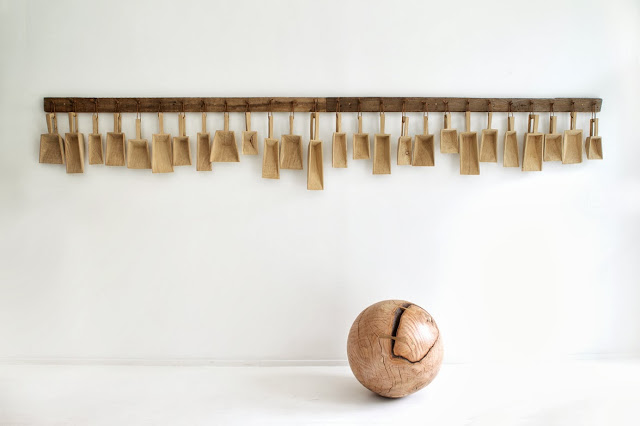
What wood gives you that perhaps you have not found in other materials?
I could talk about wood all day. I find it to be an incredibly friendly, and easy material to work. This is not to say that it will always behave as you want it to or expect, but in terms of industry, wood is readily available and the tools needed to shape it are equally accessible.
Most materials have some latent “memory” that indicated how they were formed or will react, in wood this potential is very closely related to the material once being a living thing – this in itself is a unique quality of wood. All wood begins as a tree. For me, more than other materials this connection from one living thing to another is the most evident with wood. I think that even subconsciously we connect with the notion of growth, change, action, and reaction with this material. There is a certain natural vibration, or resonance that is shared and understood by this closeness.
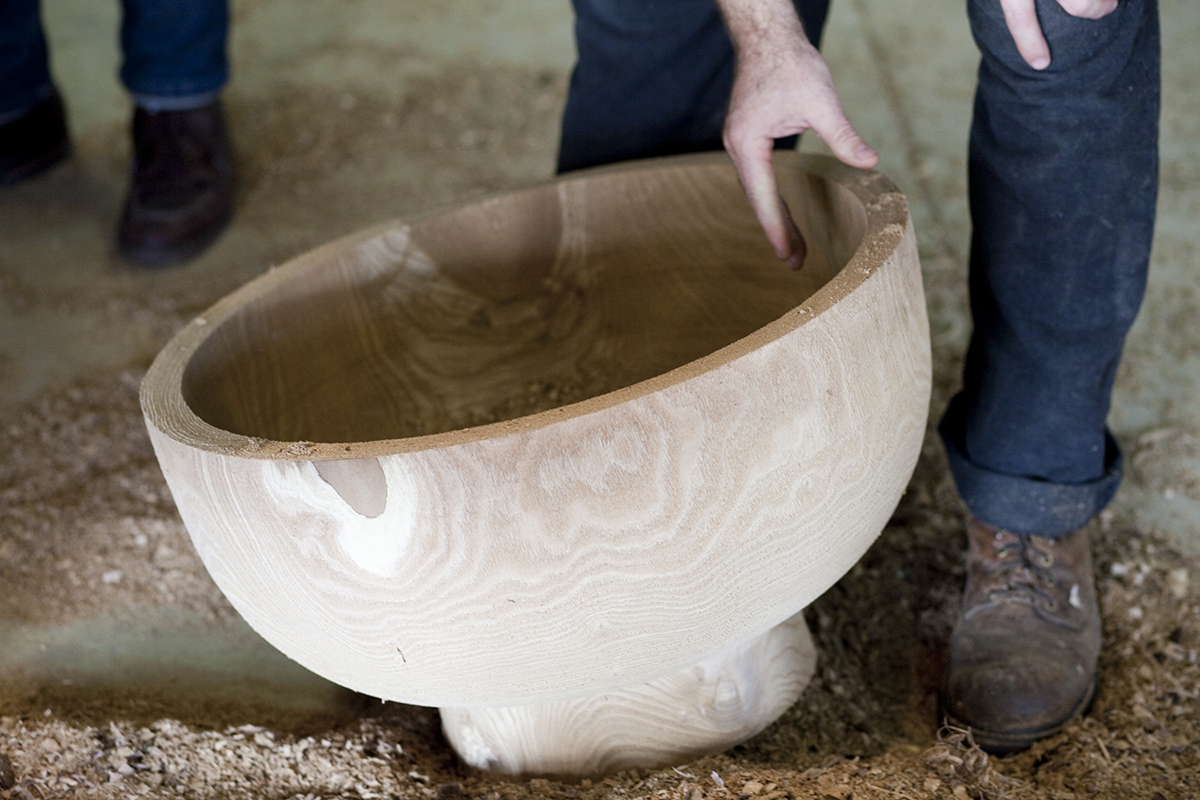
Your turning designs are really great, but as you say, it is needed a lot of concentration for turning, and just no thinking, just the lathe, the wood and your hands. Does this work have the capacity to change your daily mood?
I talk about feeling as an important design tool. I use my feelings to intuit things that I don’t necessarily understand at first glance, or if I am unsure of the direction that a piece should take. I’m not referring to the sense of touch when I say feeling, I mean to describe something deeper, something inside. I think that there is a very close relationship between how I feel and the work that I am doing at any one point. There is definitely a correlation between being in a bad mood and being too dangerous, making terrible mistakes or just being unproductive. There is also the sweet spot where everything seems to be elevated, work and mood. Often, if I get stuck somehow, even sweeping the floor can help me to break out of a rut. I think that for me it comes down to a greater sense of productivity.
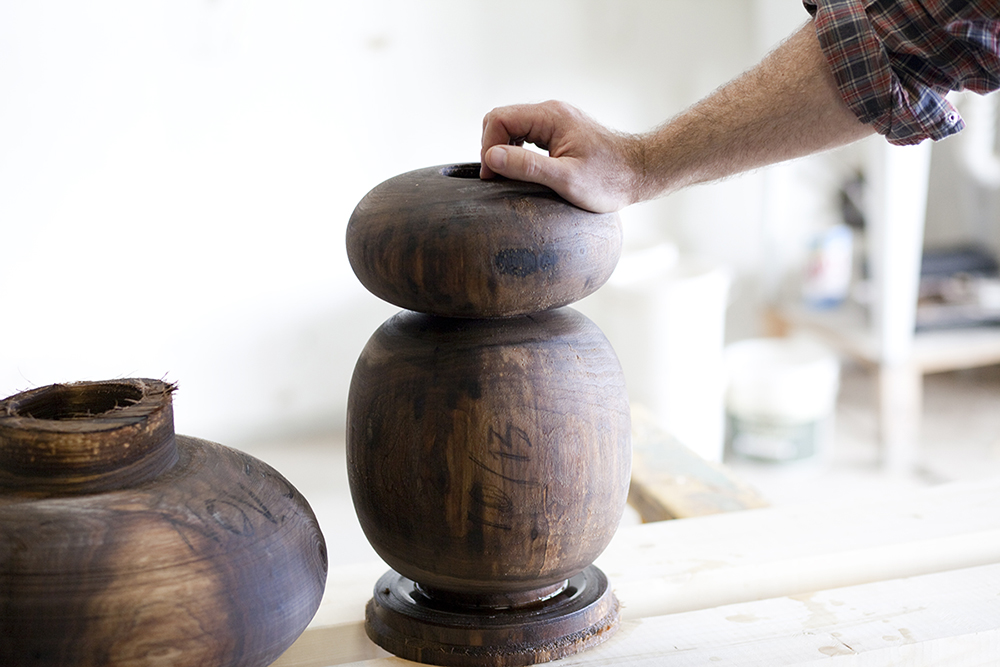
How comes up the idea about making your “Sculptural Kitchen Tools” ?
I love the idea that simple chores, or basic work around the house can be a moment of positive connection. We say “sculptural tools” because that is the way that they are conceived, as functional sculpture. I want my work to encourage people to look at, or experience their lives differently.
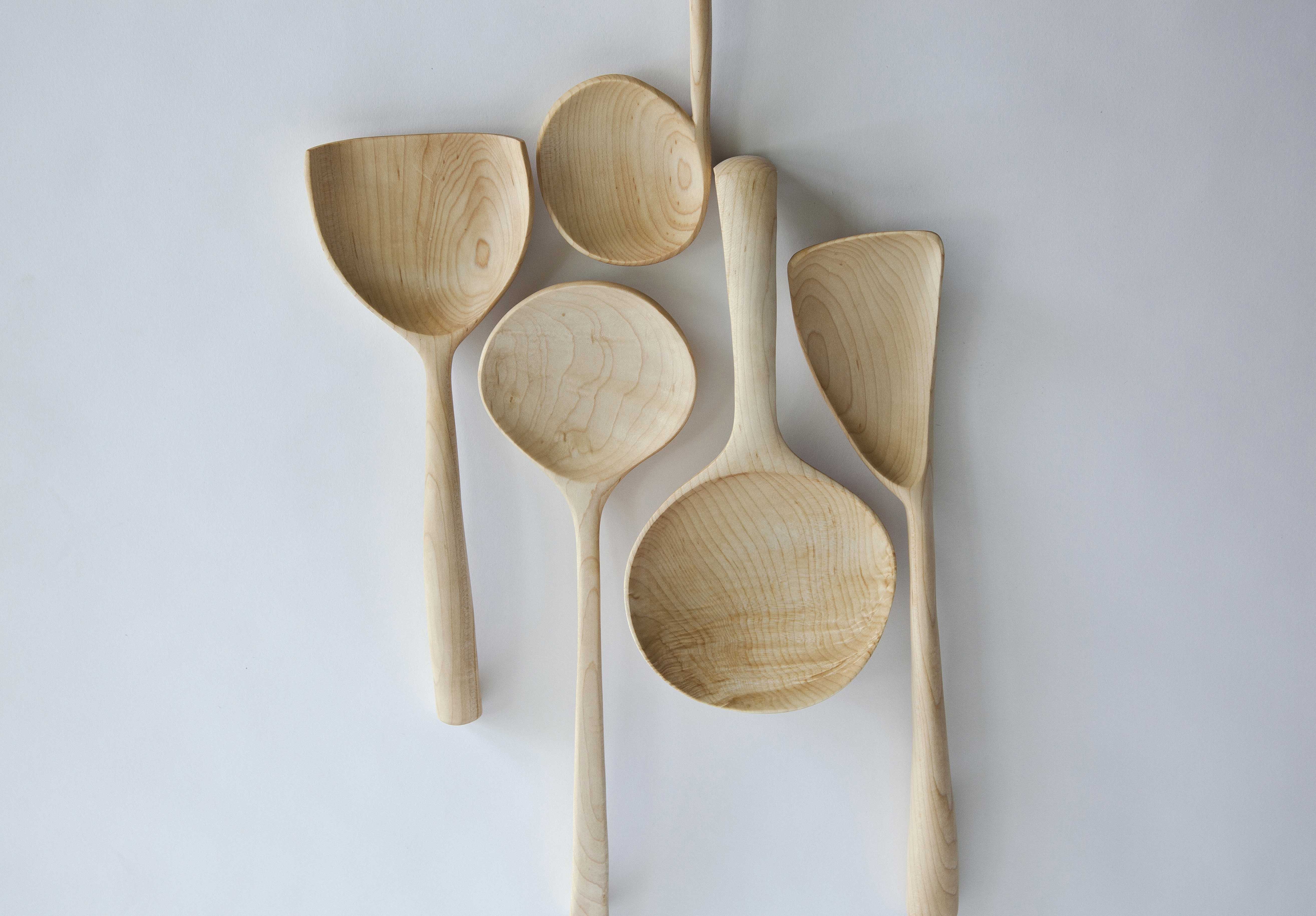
Most of them are spoons, any reason for it?
I think that spoons epitomize this kind of pedestrian, functional sculpture that I’m talking about. They are quite persuasive, iconic shapes really.
You say that each object, of this wooden tools, is part of a limited edition of 365 per year that celebrates a comfortable connection with daily chores and the love that goes into a home cooked meal. Explain it a bit for us please….
Originally, I asked myself what would happen if I committed to carving a spoon everyday ?. . . Conceptually, for the love of carving, but ultimately as a chore, a little time spent every day making the same thing. How do you keep approaching a task with love day in and day out, what keeps it all relevant, and what would I learn? 365 just presupposed a limit. I think about it as active investigation, or a learning process.
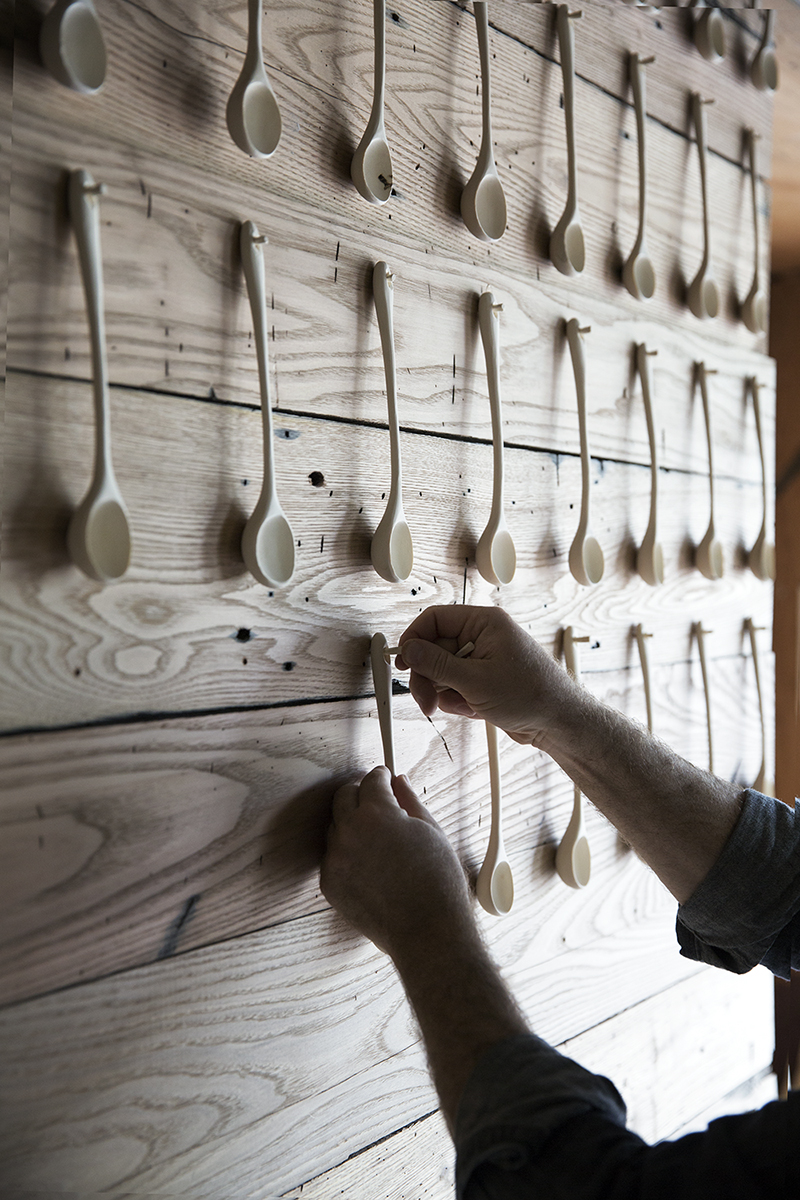
Have each type of wood a sound, a resonance different between them?
Of course.
The very wood that is chosen for the fronts of acoustic stringed instruments like guitars, is noted for its special resonance. Many “soft woods” like fir or spruce are especially good at becoming musical. Dense hard woods make pretty convincing percussive instruments.
Each object that you work on is unique; do you mark them in some way?
Often, I am thinking about something as I work on a piece, a concept or a word, sometimes a song or a poem and somehow I try to incorporate a fragment of this in the work. It can be in a very small way but somehow I like the idea of leaving a message. The spoons murals all have a little scrimshaw plaque set into the back. I sign art works, but I wouldn’t say that I was into overt branding. I strive for the designs to have a message of their own.
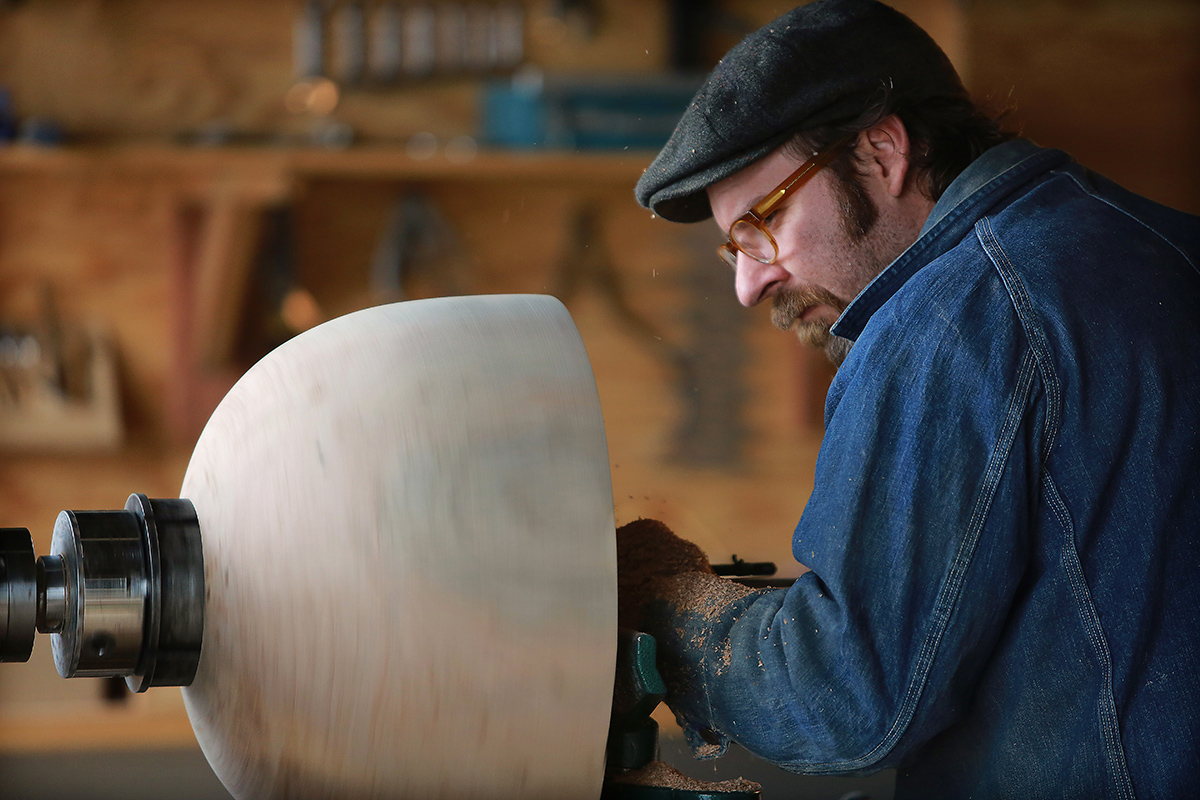
Do you write the story of each object somehow? It will be a good work about wooden language…..
I’m not sure that I have the discipline to put it all into words. It is however funny that you ask because I have been working on a book with Chronicle Books over this past year which is due out this next fall.
The title is – “The Artful Wooden Spoon”.The book is full of great images and I think good information.
I love your ‘Spoons Mural’, what do you try to express through it?
The plaque on the back of one of the panels may read something like “temperance”, or “fortitude” . . . but to me they are all about rhythm.
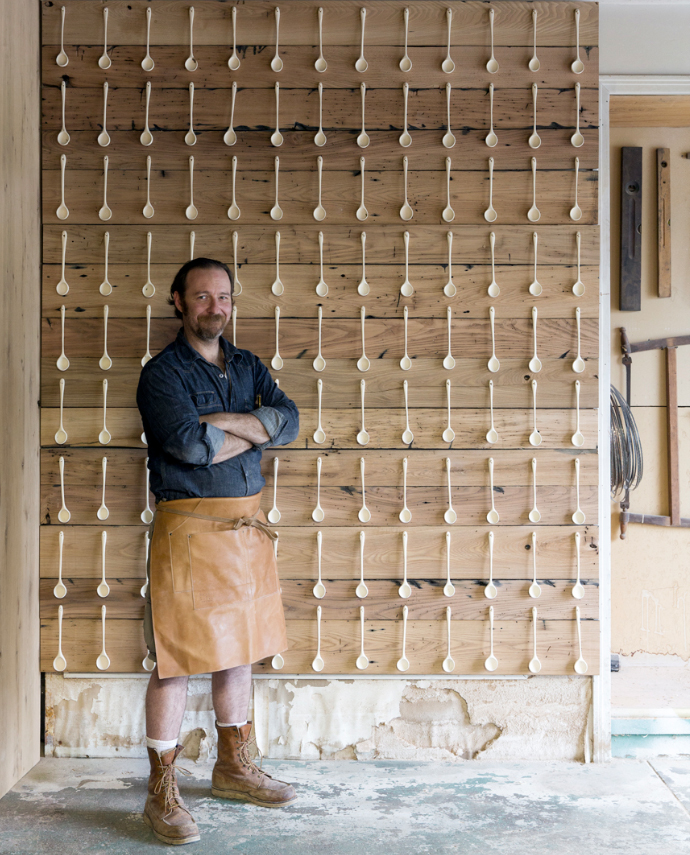
Talking about business, do you spend time in your work to publications or other media to make yourself know and increase sales, or you have someone to help you?
I spend as little time as possible doing these things, neither are they things that I am very good at. I am more prone to give things away rather than sell them, and I am terrible with the computer! Thankfully, I do have help when it comes to running the larger business. We always try to focus on the work first, good work can speak for itself.
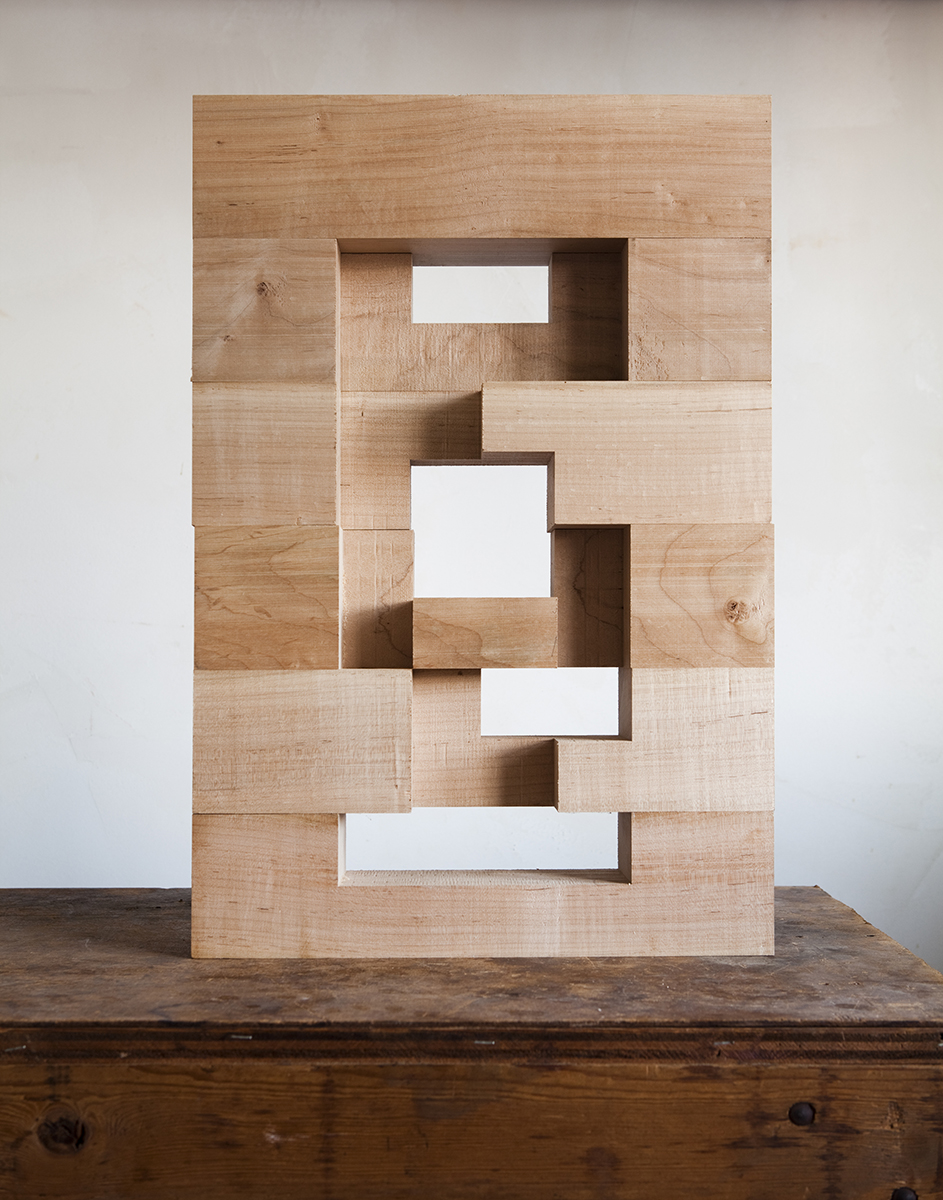
What is beauty for you?
This is a very hard question. I have been thinking about it as an experience, a moment, and a convergence of many things. You know when something is beautiful, and you know when something is not. Right? But there are also things that are captivating and in-between. Beauty can also change, something that was once ugly is now seen in an entirely different light or, that which was once beautiful, now dull and drab. .
Perhaps it needs to be transitory to be beautiful. But what about objective, can it objective?
I think that the smell of the air just before it rains is beautiful.
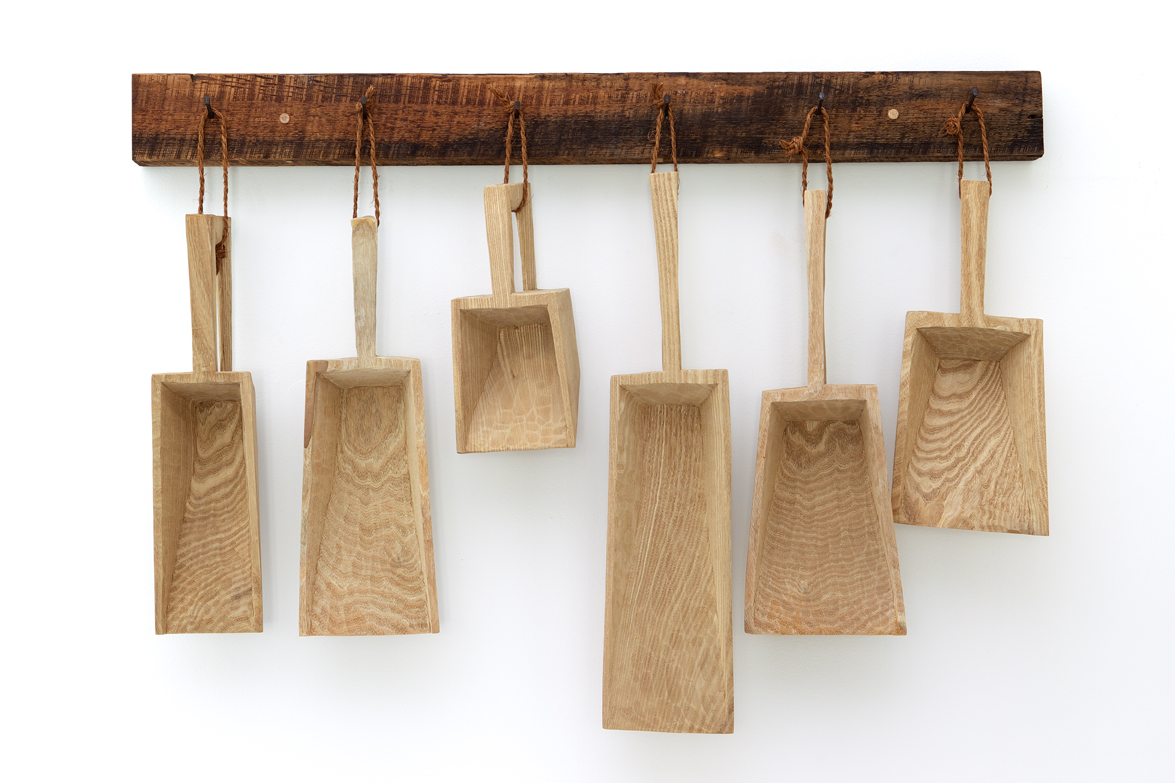
What is the most difficult thing in your work? and the one you like more?
My work is full of hardship, the wood is heavy and the tools are sharp. Like owning any other business it has its ups and downs. It is not always easy, but it is a good life that is full of productivity, creativity and beauty.
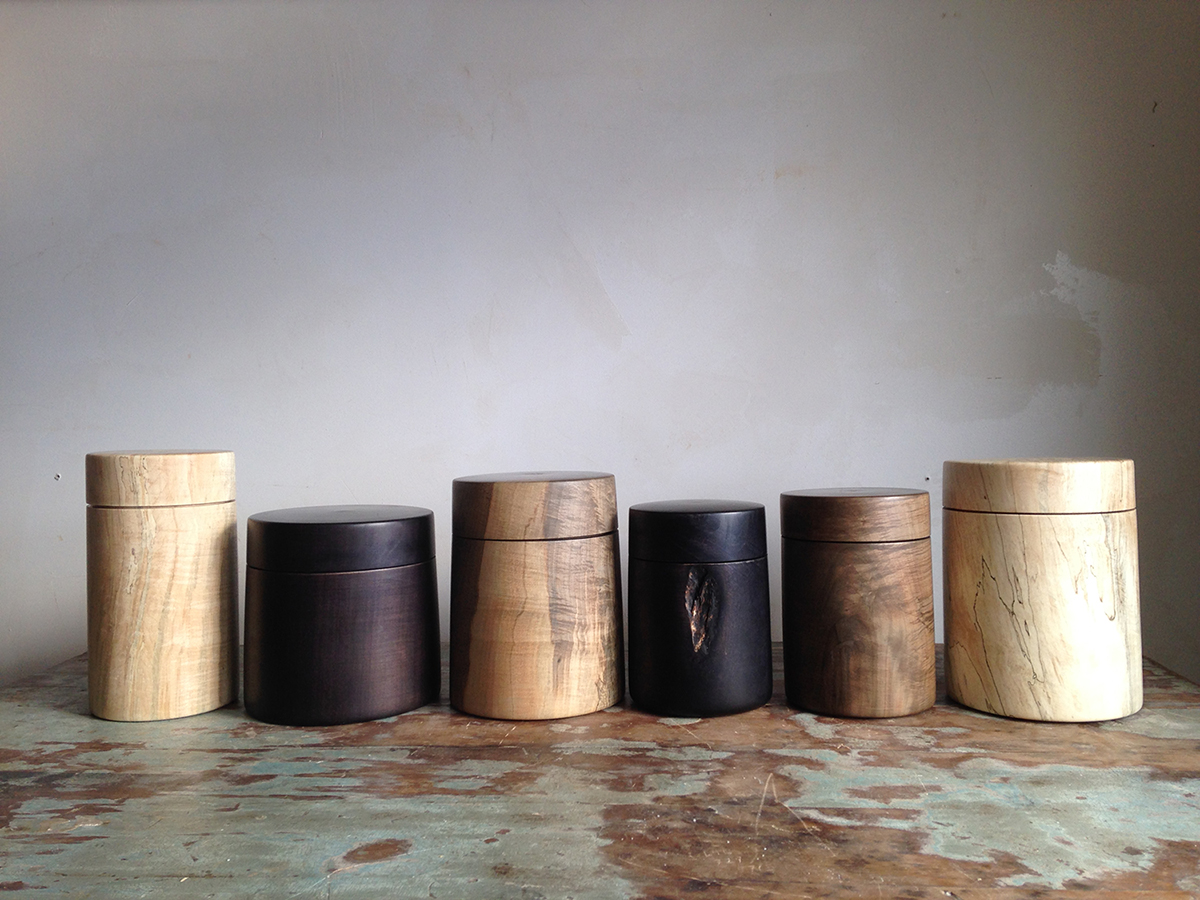
Any advice?
You have got to believe in yourself, but other people don’t . . . so try to remember respect the ones who do, they are special.
Also – Do one thing at a time, if you get tired, take a rest.
